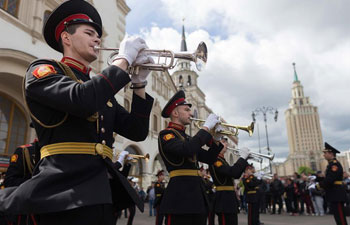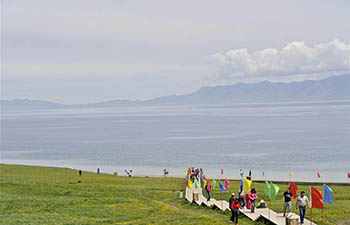MOSUL, Iraq, June 2 (Xinhua) -- Iraqi government forces on Friday completed liberation of al-Saha neighborhood after days of heavy clashes against Islamic State (IS) militants in north of the old city center in the western side of Mosul, the Iraqi military said.
"The commandos of the Counter-Terrorism Service (CTS) completely freed al-Saha neighborhood and raised the Iraqi flags over some of its buildings," Abdul-Amir Yarallah from the Joint Operations Command (JOC) said in a statement.
On Monday, a CTS commander said that the special forces freed 70 percent of al-Saha neighborhood and killed and some 70 militants after four days of a push by the CTS forces, army soldiers, federal police and interior ministry elite forces, known as Rapid Response into the neighborhood and the adjacent neighborhoods of al-Zanjili and al-Shifaa.
"The commandos of the Counter-Terrorism Service (CTS) are fighting fierce clashes in al-Saha neighborhood and now they are in control of about 70 percent of the neighborhood," Staff Maj. Gen. Maan al-Saadi, commander of CTS' special operations, told Xinhua reporters in the western side of Mosul.
The CTS forces managed to kill some 70 IS militants, most of them were foreigners and non-Iraqi Arabs, in the battles during the past two days in the IS stronghold of al-Saha, Saadi said.
The troops recaptured parts of the al-Zanjili and al-Shifaa, but heavy back and forth street-to-street battles are still underway, as the extremist IS militants showed stiff resistance so far, according to a local army source.
Iraqi forces, backed by international coalition, have been fighting to drive out IS militant from the western side of Mosul, but several neighborhoods, including the densely-populated old city center, are still under control of the extremist militants.
According to the Iraqi military, over 90 percent of the city has been retaken from IS in the ongoing major offensive launched in October last year.
Mosul, 400 km north of Iraq's capital Baghdad, has been under IS control since June 2014, when government forces abandoned their weapons and fled, enabling IS militants to take control of parts of Iraq's northern and western regions.

















